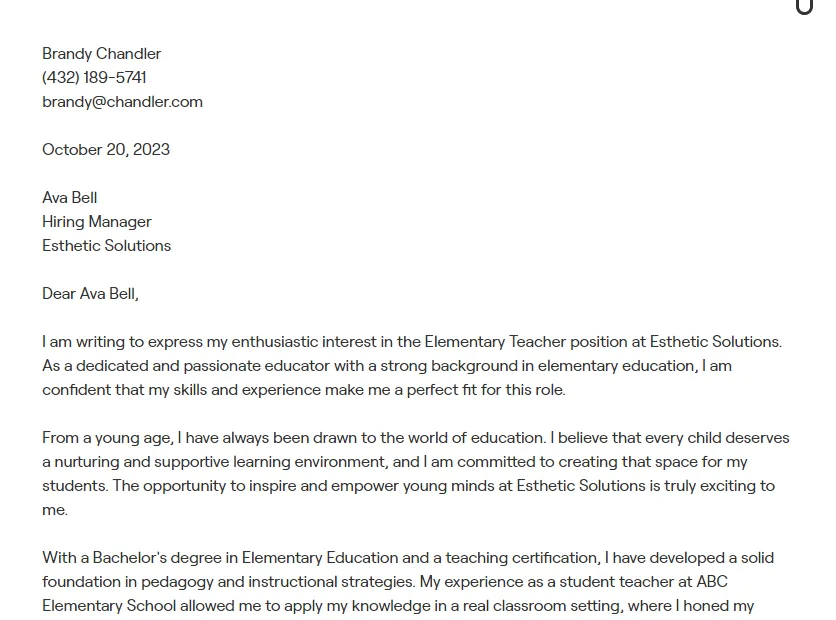Cover Letter for Teachers Why It’s Crucial
In the competitive world of education, a well-crafted cover letter is your first opportunity to make a positive impression. For aspiring teachers with no prior experience, a cover letter becomes even more critical. It serves as a platform to showcase your potential, enthusiasm, and suitability for a teaching position. Unlike experienced educators who can lean on their proven track record, new teachers must leverage their cover letter to highlight transferable skills, educational background, and a genuine passion for teaching. This document isn’t just about stating your qualifications, it’s about narrating a compelling story that captures the attention of the hiring committee and distinguishes you from other applicants. A strong cover letter can be the difference between getting an interview and being overlooked, making it a non-negotiable part of your job application process.
Highlighting Transferable Skills
When you lack direct teaching experience, focusing on transferable skills is essential. These are the abilities and qualities you’ve developed in other settings, such as volunteer work, internships, part-time jobs, or even extracurricular activities. These skills can readily be applied to the classroom environment. Think about skills like communication, leadership, organization, problem-solving, and adaptability. For instance, if you’ve led a team in a project, that experience can be translated into classroom management skills or the ability to guide student groups. Similarly, if you have experience in customer service, you can highlight your interpersonal skills and your capacity to handle diverse personalities. The key is to identify these skills and provide concrete examples of how you’ve used them to achieve positive outcomes. Showcasing these transferable skills demonstrates to the hiring committee that you possess the capabilities needed to thrive as a teacher, even without prior classroom experience. A well-presented list of these skills shows your ability to adapt to new environments and makes you a more desirable candidate.
Identifying Your Skills
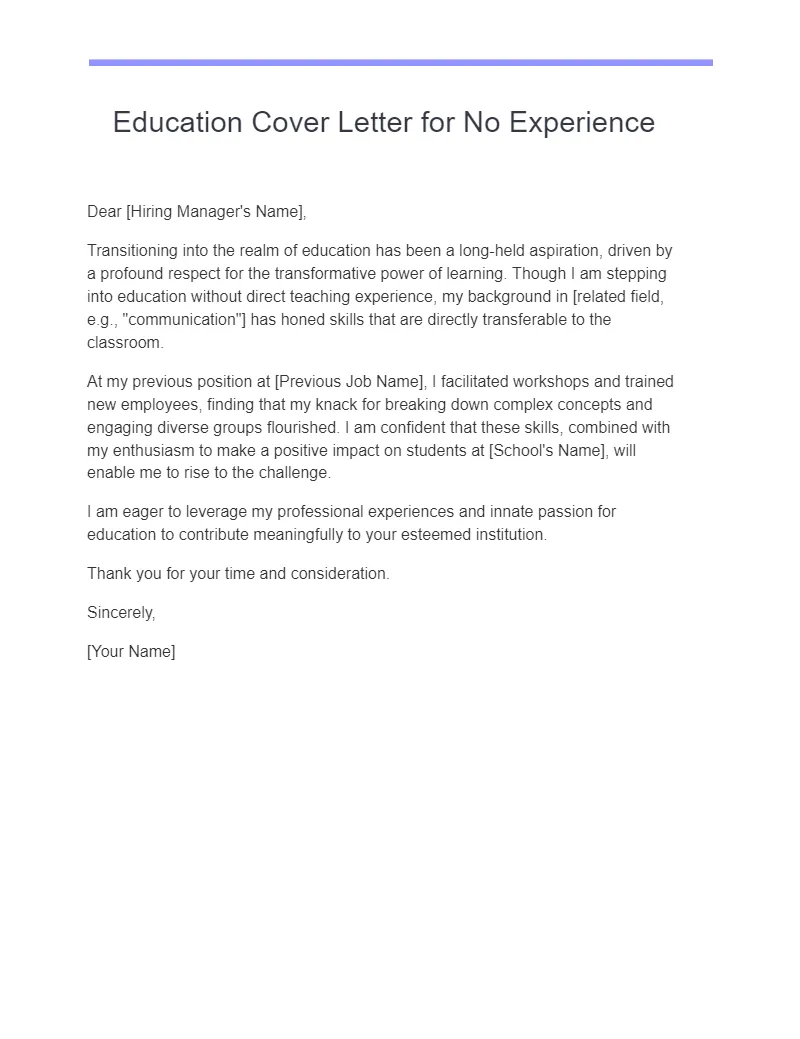
Begin by carefully reviewing the job description. Identify the key skills and qualifications the school is looking for. Next, conduct a self-assessment to identify the skills you possess that align with the job requirements. Consider your experiences in various settings, such as academic projects, volunteer work, or part-time jobs. Make a list of your skills that align with the description, even if they are not directly teaching-related. These can include communication, organization, leadership, patience, empathy, and adaptability. For each skill, provide a brief example of how you have demonstrated it in the past. For example, if you list ‘communication,’ you might mention a presentation you gave, a project you led, or a time you successfully mediated a conflict. By identifying your skills and providing specific examples, you can demonstrate to the hiring committee how you can contribute to the classroom.
Showcasing Your Education
Your educational background is a cornerstone of your cover letter, especially if you are a new teacher. Highlight your degree, any teaching certifications, and relevant coursework that has prepared you for the role. Instead of merely listing your qualifications, elaborate on how your education has equipped you to meet the challenges of teaching. For example, if you took a course in child psychology, describe how you will apply that knowledge to understand and address the needs of your students. If your degree included practical experience, such as student teaching or practicum, provide details on the skills you developed and the positive outcomes you achieved. Your cover letter should demonstrate that you have the foundational knowledge and skills required to be an effective teacher and that your education has provided a strong base for your teaching career. Remember to mention any honors, awards, or special projects that showcase your academic accomplishments and commitment to education.
Emphasizing Your Passion
One of the most important aspects of your cover letter is conveying your genuine passion for teaching. This is the element that can set you apart from other candidates, as it demonstrates your dedication and enthusiasm for the profession. Write about why you are drawn to teaching and what inspires you about working with students. Discuss your philosophy of education and how you plan to create a positive and engaging learning environment. Share any specific experiences that fueled your passion for teaching, whether it was tutoring a classmate, volunteering at a summer camp, or assisting a teacher in the classroom. Illustrate your commitment to student success by showcasing how you hope to inspire, motivate, and support your students in their learning journey. Let your enthusiasm shine through your words, allowing the hiring committee to understand why you are the perfect fit for their school community.
Crafting a Compelling Opening
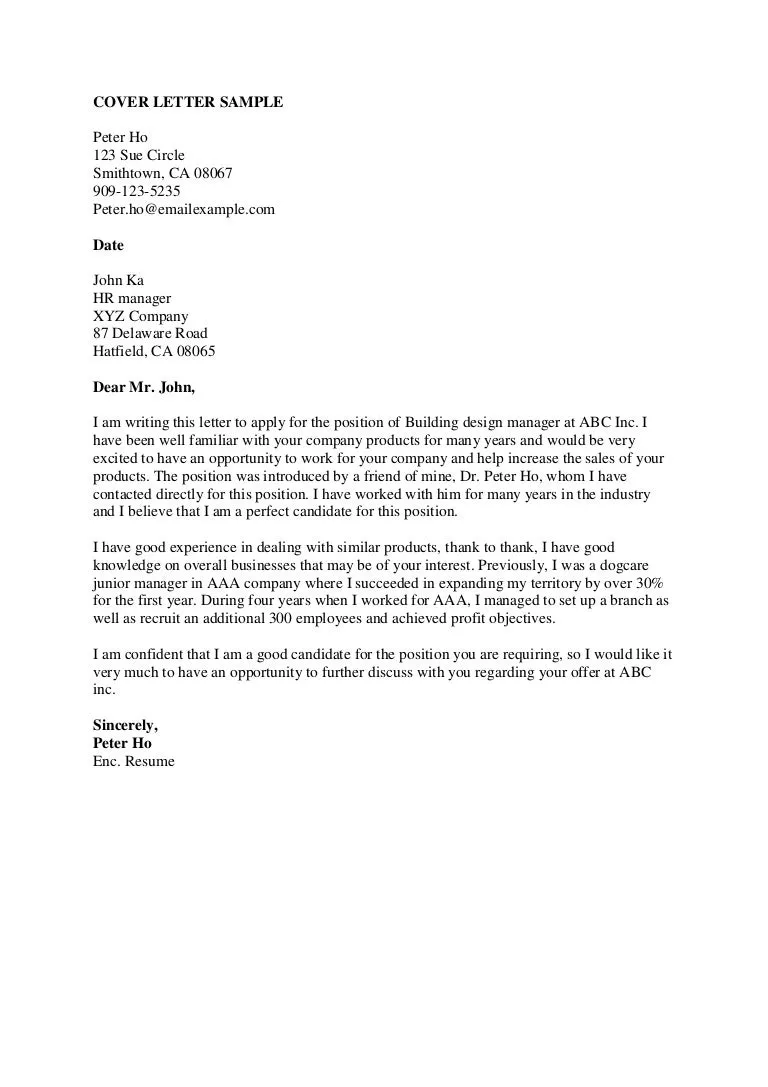
The opening paragraph of your cover letter is your chance to grab the reader’s attention and make a strong first impression. Avoid generic greetings or statements; instead, aim to create immediate engagement by expressing your enthusiasm for the position and the school. If you know the name of the hiring manager, address the letter to them. If you’re responding to a specific job posting, mention the position and where you saw it advertised. State concisely why you are interested in the role and what makes you the right candidate. Make sure the opening paragraph reflects your personality and highlights your most relevant qualifications. A strong opening sets the tone for the rest of your letter and encourages the reader to continue reading. Showing you did your research and are really interested in the school or district will show you care about the opening of your letter.
Structuring Your Cover Letter
A well-structured cover letter is clear, organized, and easy to read. Begin with an engaging opening paragraph, followed by the main body, where you highlight your qualifications and explain how your skills and experience align with the job requirements. Use concise paragraphs, each focusing on a key point or skill. To ensure your letter is easy to navigate, use headings and subheadings to structure your thoughts. The body of your cover letter should be well-organized and divided into sections. This should include information about your educational background, your transferable skills, and your passion for teaching. Provide specific examples to support your claims. Make sure to conclude your letter with a clear call to action, expressing your interest in an interview and thanking the hiring manager for their time and consideration. Keep the tone professional and enthusiastic, and make sure your letter is no more than one page in length. The structure you use in your letter reflects your organizational skills.
Teacher Cover Letter Body Paragraphs
The body paragraphs of your cover letter are where you get to demonstrate your abilities and suitability for the role. The key is to provide clear, concise examples that illustrate your transferable skills and enthusiasm for teaching. In one paragraph, discuss your educational background, mentioning relevant coursework, student teaching experiences, or certifications. In another paragraph, focus on your transferable skills, providing specific examples of how you have used them in other settings, and how they would benefit your work in the classroom. Consider any instances where you have used communication, problem-solving, or leadership skills. Each paragraph should support your claims and connect your experiences to the requirements of the job. Emphasize how you can contribute to the school’s mission and create a positive learning environment. By being specific and providing examples, you will make your letter more impactful and increase your chances of getting an interview.
Demonstrating Enthusiasm
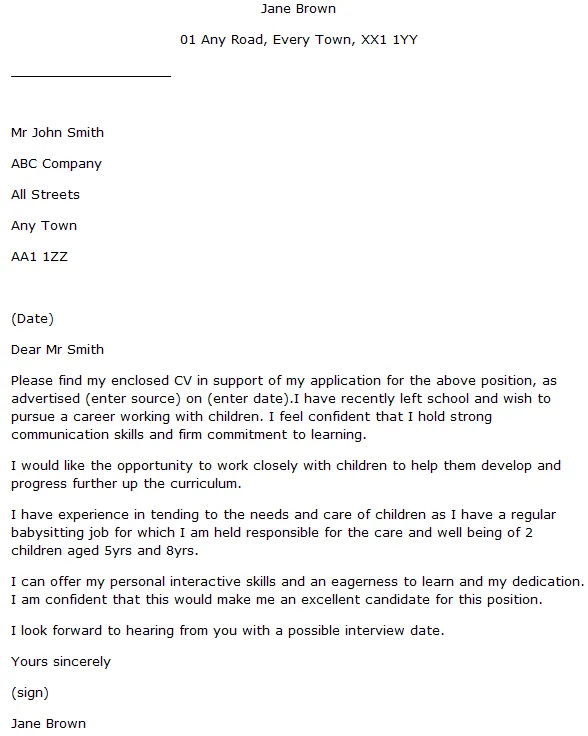
Enthusiasm is a powerful asset for teachers. Your cover letter should reflect your energy, passion, and excitement about the opportunity. Show your genuine interest in the school, its students, and its educational philosophy. Research the school and mention specific programs, initiatives, or values that resonate with you. Instead of simply stating that you are enthusiastic, show it through your language and tone. Use positive, energetic words and phrases, and be specific about why you are excited about the position. Demonstrate your interest in the school culture and your understanding of the students’ needs. Show your eagerness to learn and grow as an educator. Demonstrating your passion for education and excitement about the prospect of teaching will create a positive impression on the hiring committee.
Showcasing Experience from Volunteering
Volunteer experiences are invaluable for aspiring teachers without formal experience. If you volunteered in a school, tutoring center, or youth program, highlight those experiences to demonstrate your abilities. Describe the tasks you performed, the challenges you overcame, and the positive outcomes you achieved. Focus on the transferable skills you developed, such as your ability to communicate, manage groups, and adapt your approach to meet different student needs. For example, if you volunteered as a tutor, mention how you helped students understand complex concepts, and how you adapted your teaching methods to suit their learning styles. If you volunteered at a summer camp, discuss how you created engaging activities and managed a group of children. Demonstrate your skills and your commitment to working with students by providing specific details. Ensure that your volunteer experiences align with the requirements of the teaching role.
Cover Letter Conclusion Call to Action
The conclusion of your cover letter is the perfect spot to wrap up your letter and express your interest in the position. Start by summarizing why you are an ideal candidate and reiterate your interest in the role. End with a clear call to action. Express your eagerness for an interview and your availability for a meeting. Provide your contact information and thank the hiring manager for their time and consideration. This shows that you are proactive and professional. Make sure that your conclusion leaves a positive and lasting impression. Proofread your conclusion carefully to ensure that it is polished and error-free. The conclusion should reflect the enthusiasm and professionalism that you have demonstrated throughout your cover letter.
Proofreading and Editing Your Letter
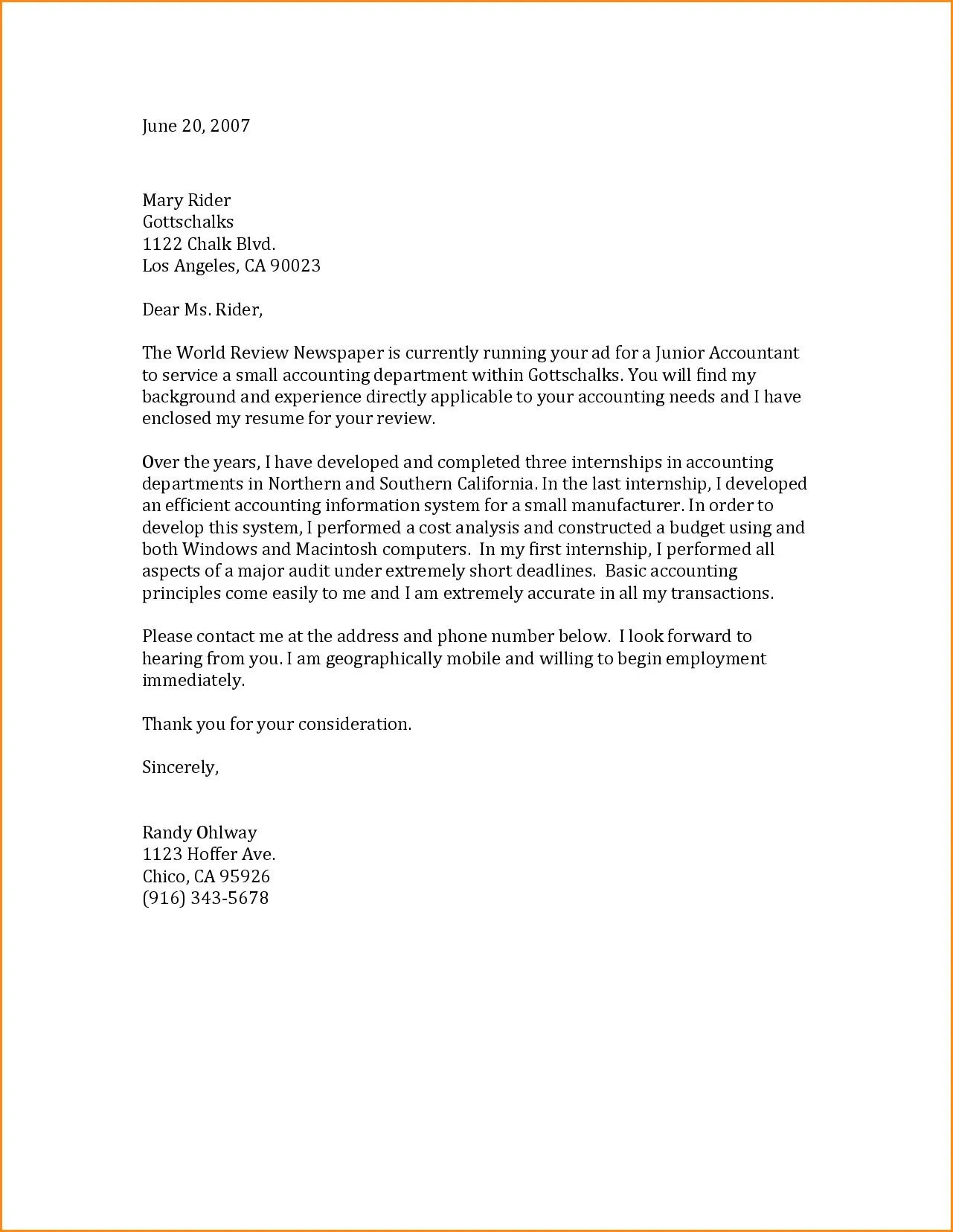
Before submitting your cover letter, meticulous proofreading and editing are non-negotiable steps. Errors, typos, and grammatical mistakes can create a negative impression. Review your cover letter carefully, checking for any spelling errors, punctuation mistakes, or grammatical inaccuracies. Read your letter aloud to catch any awkward phrasing or inconsistencies. Consider having a friend, family member, or career advisor review your letter. They can provide an outside perspective. Pay close attention to details such as the correct spelling of names, the proper use of titles, and the consistency of your formatting. Ensure that your letter is free of any errors before you submit it. A well-edited cover letter reflects your attention to detail and professionalism, significantly enhancing your chances of making a positive first impression.
Tailoring Your Cover Letter for the Role
Each teaching position is unique, so your cover letter must be tailored to the specific requirements of the job. Avoid sending generic cover letters to multiple schools. Instead, carefully review the job description and customize your letter to align with the specific needs of the position. Highlight the skills and experiences most relevant to the role. Research the school and mention any specific programs, initiatives, or values that resonate with you. Demonstrating your understanding of the school’s needs and your enthusiasm for the opportunity will make your application more compelling. Personalize your cover letter to the school and role, rather than using a generic template. By taking the time to tailor your cover letter, you will make a better impression on the hiring committee and increase your chances of getting an interview. This dedication shows that you’re serious about the role and have done your research.
